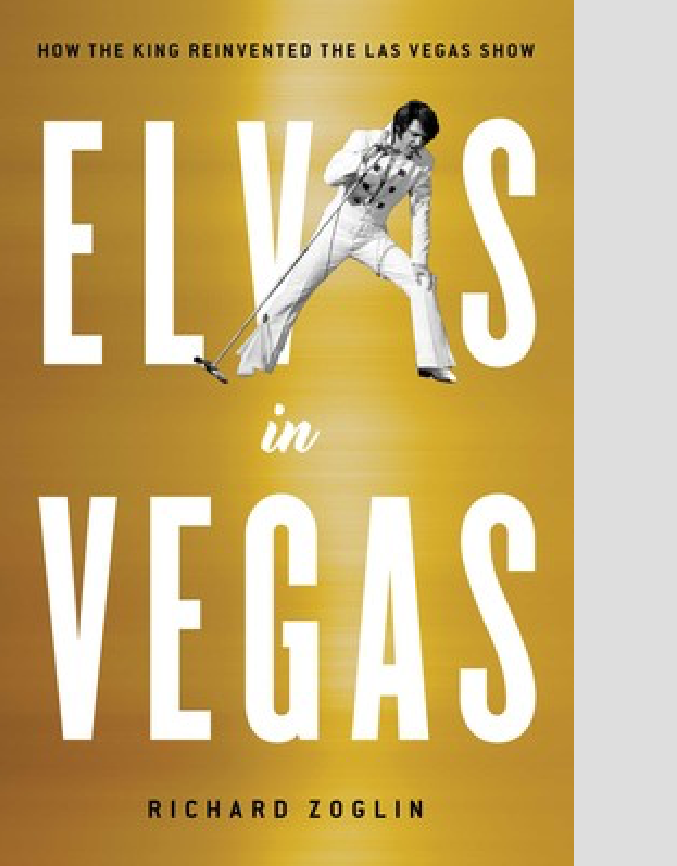People should remember that Elvis Presley didn't have a playbook.
No one suspected in the beginning that a career in rock 'n' roll would be sustainable. It was more likely a greasy kid stuff fad and its purveyors would be back pumping gas and driving trucks within a year or two.
Presley didn't think of himself as an artist. He was an entertainer. He dyed his sandy hair black because he believed dark-haired movie stars had more longevity. He saw Dean Martin as a career lodestar.
He famously ceded control over his destiny to an illegal Dutch immigrant and former carnival worker who called himself Col. Tom Parker. (Elvis never performed overseas, possibly because Parker was afraid to apply for a passport. He feared that the application process might uncover his dubious status. So the only performances Elvis ever gave outside the United States were in Canada.)
But Parker's instincts weren't infallible, and though the silly movies that consumed most of Elvis' time and energy after he returned from his Army tour of duty in Germany were lucrative, safe and easy for the big fella to coast through, as the '60s wound down they were played out. No studio was apt to offer Elvis a new contract anywhere close to his expiring one and Elvis was bored with going through the motions. It didn't help that the Beatles, Rolling Stones, Bob Dylan, et al., had redefined rock 'n' roll, making popular music for adult sensibilities.
And Elvis hadn't had a No. 1 song since 1962.
In 1967, Parker went to NBC with a proposal -- Elvis would do his first-ever television special, a Christmas show to air in December 1968. Those versed in Presley lore know what happened; a young producer named Steve Binder subverted Parker's intentions and convinced Elvis to get back to his stripped-down roots. The resultant Singer Presents Elvis, better known as "The '68 Comeback Special" presented a lean and hungry King resplendent in black leather and restored in all his urgent glory.
This set the stage for his return to Las Vegas, where he'd been poorly received in the first flush of Elvis-mania. But the money was too good -- Parker secured for his star a month's residency at a brand new hotel, the International, at $100,000 a week. (Elvis was not the first star to play the International; Parker insisted that another performer open the hotel, so that they could work out all the bugs. So Barbra Streisand played the first two weeks.)
The highest and best use of Richard Zoglin's Elvis in Vegas: How the King Reinvented the Las Vegas Show (Simon & Schuster, $28) is his account of how those shows came together and his explanation of why -- for a brief period -- Elvis in Vegas was more than a cynical money grab.
Zoglin portrays the opening shows as something akin to a heavyweight boxing match, the audience rife with celebrity and charged with anticipation and Elvis and his core band slamming through a set list that only nodded toward nostalgia as it re-established Elvis' artistic credibility.
Elvis had vetoed the showgirls and other Vegas-y accoutrements Parker had wanted -- he didn't really utilize the 40-piece orchestra that had been provided. He just brought a tight 75-minute rock show to town, genuflecting to oldies like "Jailhouse Rock" and "Love Me Tender" but leaning heavily on new material like "In the Ghetto" and "Suspicious Minds."
It didn't last, and within a year of so Elvis was lapsing into self-parody, bored to tears by his material and trapped like a prison in his hotel suites. But for a couple of residencies, at least, the King was back.
Zoglin fills out the story with a useful pocket history of Las Vegas entertainment culture and a history of how the city grew from a provisional provider of necessary services (gambling, prostitution, quickie divorce) to America 's favorite adult theme park.
While much of what Zoglin has to say about the city's rise through the '50s and '60s might sound familiar, he's got a breezy style, and there are only a couple of places where the book becomes repetitive. It's a snappy read (I knocked it out in two nights) and provides a corrective to the conventional wisdom that Elvis in Vegas was always pathetic.
Sometimes he was gold.

I want to give Robert Dean Lurie's Begin the Begin: R.E.M.'s Early Years (Verse Chorus Press, $19.95) a special prize. Let's call it the "I'm Sorry I Didn't Get to This Book Sooner and Write More About It Award." Because I am, and do.
It is a granular work that bores down hard on a band that hasn't mattered in a major way in 20 years. Still, if you are of a certain turn of mind and grew up trying to parse the lyrics to "Harbourcoat" or once drove eight hours to watch a band from Athens, Ga., play a gig in a college town, you might love this book as much as I do. Lurie is a real writer and a perceptive critic, and he performed some journalism in this effort. It's a niche product. But some of you will want it.
Email:
pmartin@arkansasonline.com
blooddirtangels.com
Style on 07/28/2019
